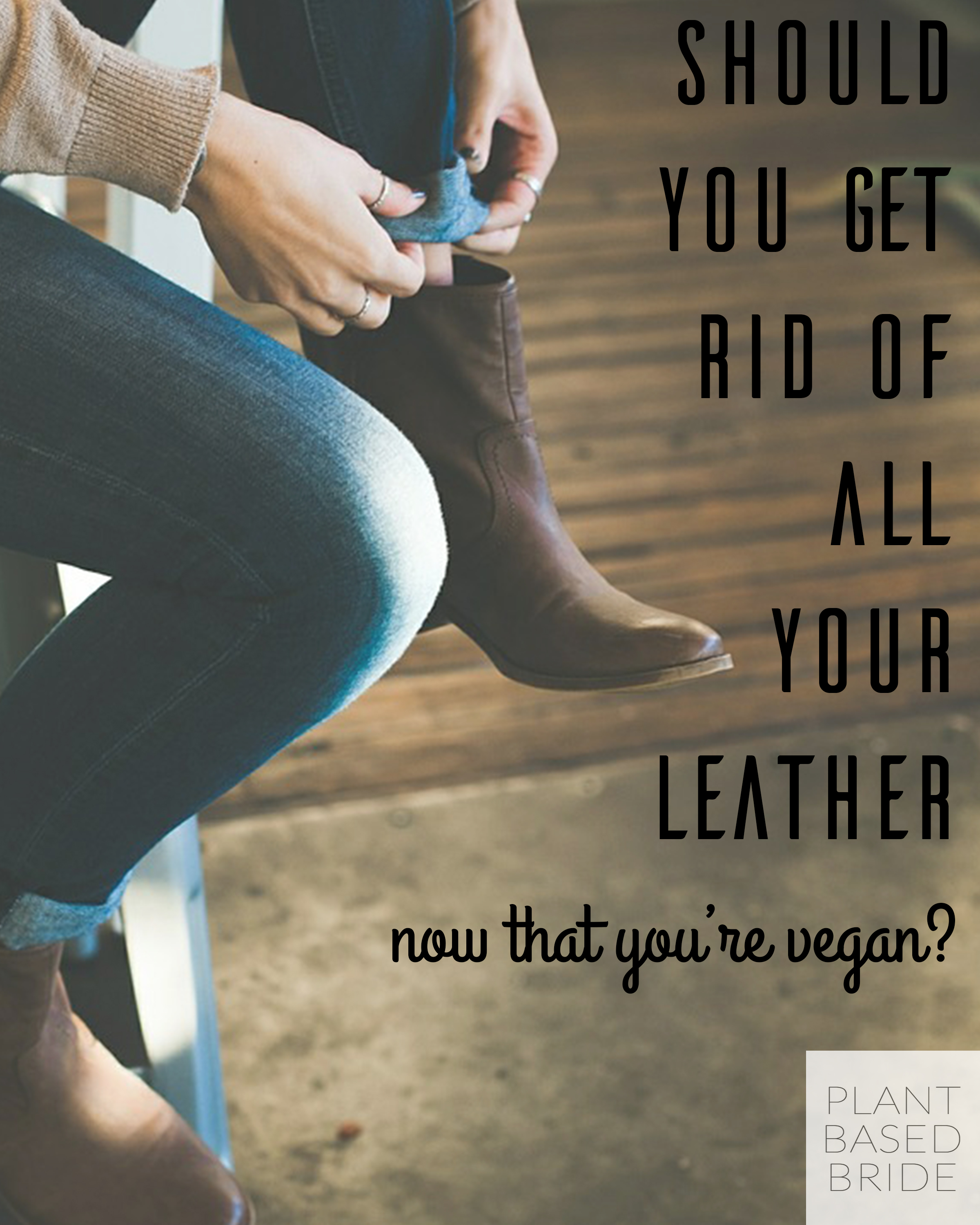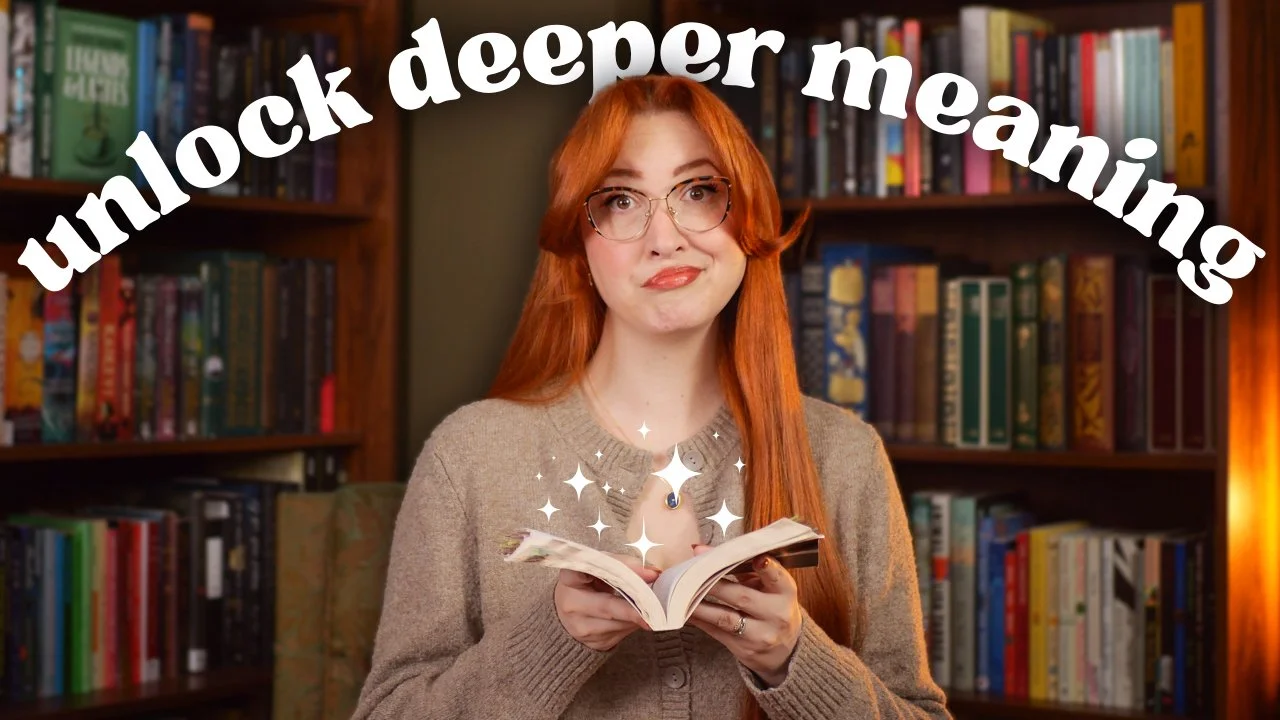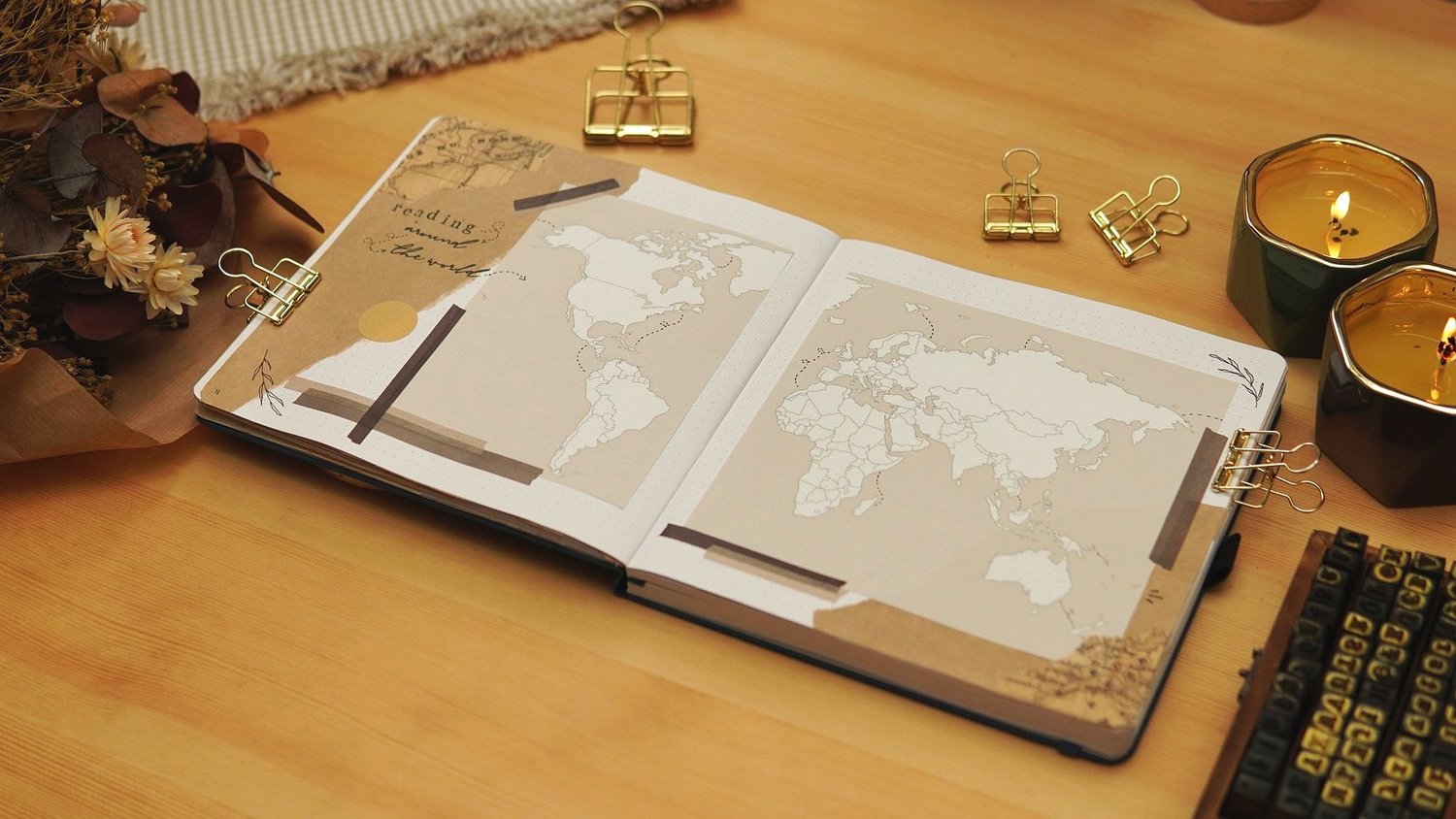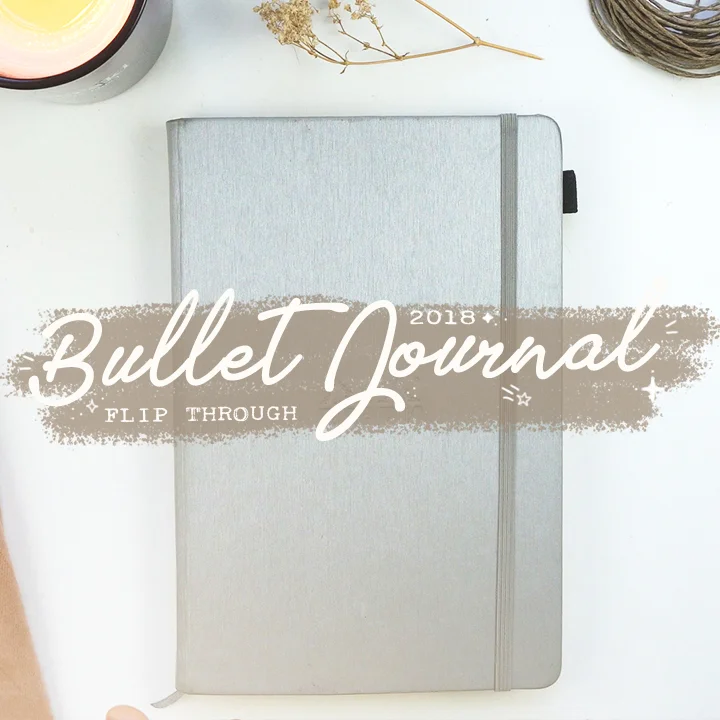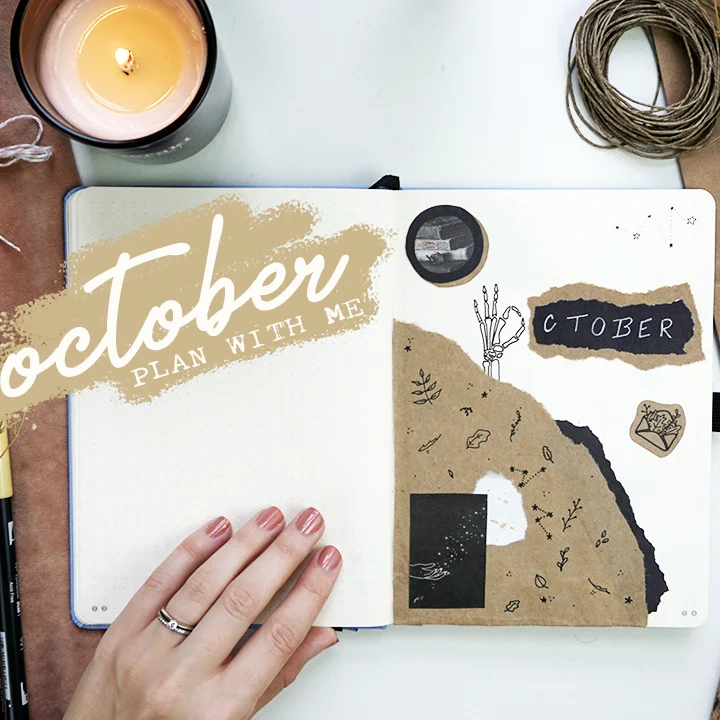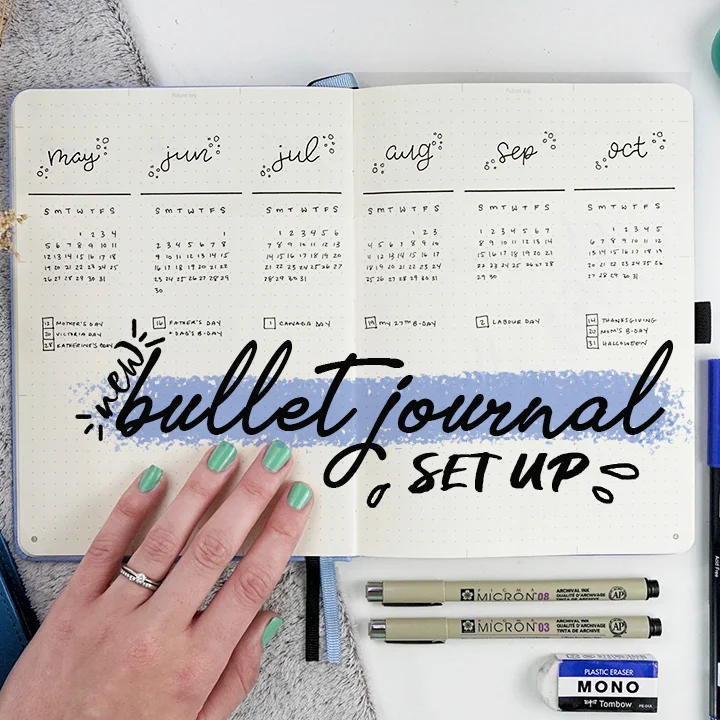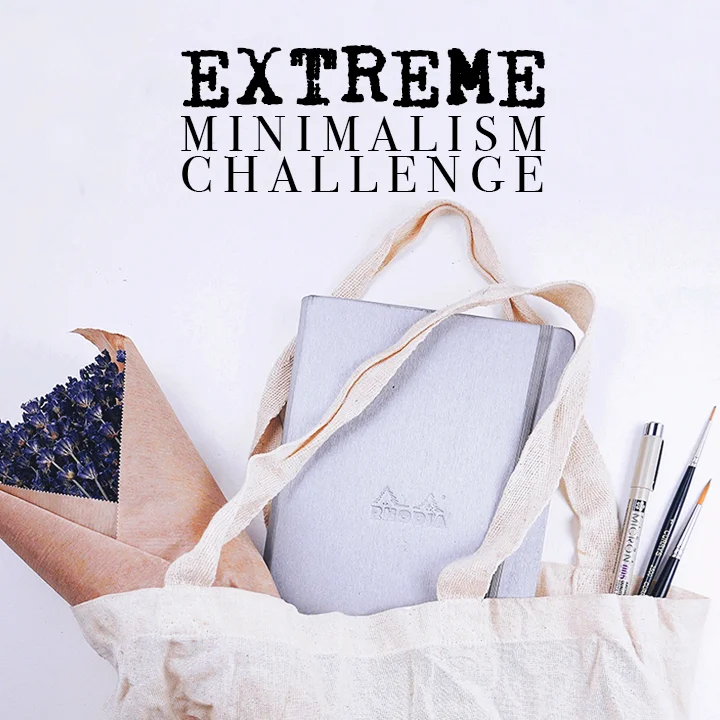Should You Get Rid Of All Your Leather Now That You're Vegan?
"What should a vegan do with all of their leather, wool, silk, and down products?"
If you asked 100 vegans you would hear 100 different opinions, but I believe there is no right or wrong answer to this question. This is not, unfortunately, a black and white issue. Ridding your life of animal products for good can be a long process or even impossible in today's world. The way they are used in just about everything, whether or not they need to be, makes transitioning to a fully vegan lifestyle a struggle. Do you drive a car or take the bus? Do you own a computer? Do you watch movies on film? You're using animal products. In today's world, the prevalence of objects containing animal products is staggering. So what should you do?
Two Sides of the Vegan Coin
From my observations there seem to be two different kinds of ethical vegan: those who believe animals should never be thought of in terms of the objects they can be made into ("Purity" Vegans), and those who don't believe animals should be made to suffer, but think that animals treated with love and respect may be used to create objects for human use when they die, whether of natural causes or by a compassionate human hand ("Impact" Vegans)*. Purity Vegans are the ones you meet who would have disposed of all items containing animal bi-products immediately upon deciding to go vegan, without debate. They are also the ones who are (usually) more likely to judge other vegans for wearing or using items containing animal products. Impact Vegans, who tend to believe that contributing to further animal suffering is the real issue, may wear and use these products until they wear out and even purchase new goods containing animal products, as long as they are second hand.
So which kind of vegan is right?
I can't give you a definitive answer. Personally, I sit somewhere in the middle. I believe that ethical veganism is about witholding your consumer dollars from the numerous industries that exploit and torture sentient beings. Under this definition, what you do with previously purchased items isn't the most important issue at hand. There is definitely a big part of me that is uncomfortable with wearing shoes made of leather or a coat with down filling, but the majority of that uneasiness comes from the knowledge that the animals suffered horribly to make these garments possible, not from the fact that they were used to create garments in the first place. Humans have been using skins and all other animal bi-products from a hunt for various purposes for thousands of years, and I don't see anything particularly wrong with that. It is the nature of life for one being to kill another and use it to sustain its life. What I have a problem with is the way that we, as a culture, now treat animals as commodoties and materials and not living beings. That we give them no respect and brutalize them for our own benefit. This is why, while I am wholeheartedly against buying new items containing animal bi-products if I can at all avoid it, I am not 100% against using products that were previously owned, whether I was the original buyer or not. These products have already been consumed and done their damage. Continuing to use them does not feed into the consumer/animal suffering loop.
Let's Look at an Example
Let's look at a hypothetical argument between a purity (in italics) and an impact vegan. (I'm going to use leather boots as an example for simplicity's sake).
Why are you wearing leather boots? I thought you were vegan?
I am vegan. I purchased these boots before I knew what animals went through for their production.
But now you know. How could you still wear them?
Yes, I do. But in continuing to wear these shoes I'm not causing any additional suffering on top of what I already have.
Yes you are! You're supporting the leather industry!
I have supported the leather industry in the past, but I no longer purchase new leather products. The animals that have died to provide these shoes have already suffered and been killed. I am not causing them, nor other animals, any harm by continuing to wear these shoes. Let me explain the normal consumer and animal suffering cycle in the leather industry**:
But if I wear boots I've already purchased? No new animal suffering. Even if I purchase a new-to-me pair of leather boots at a thrift store, there isn't the same impact. Just say someone donates her old pair of leather dress boots to a thrift shop.
- I drop in and buy them for $30.
- The owner takes that $30 and uses it to pay his/her expenses.
That's it. No distributor calls a manfacturer who orders more leather, causing an animal to be slaughtered. When the shelf in the thrift store is empty there isn't the same chain of events as in a regular shop. The thrift store owner simply waits for more donations or purchases old goods off of patrons to replace the boots I bought. In this case, I have contributed $0 to animal suffering.
But you're a walking billboard! People will see you wearing leather and think it's ok or be inspired to buy leather shoes!
There is leather everywhere. It is so commonly accepted in our culture that no one sees it for what it really is anymore. My wearing or not wearing leather boots has about as much bearing as a fly landing on someone's leg on their decision whether or not to buy leather over some other material.
But then you're still contributing to a culture with leather everywhere! You should only wear vegan products.
Ok, say I wear vegan boots instead of leather boots but that they APPEAR to be leather. How is that any different to someone just passing me on the street? The vegan boots did not cause suffering, but strangers don't know that. And if I threw out my old boots to buy new vegan ones I'm disrespecting the sacrifice made by the animal to create them and being wasteful by requiring more ressources to be used up for the sake of my feet, even if they aren't resources that cause suffering to animals. And what if those vegan boots are made of synthetic materials that are bad for the environment? Or in manufacturing plants that treat their human workers inhumanely? While animal cruelty is a very important issue in our society that needs to be addressed, it is not the sole issue.
You can't waste something that isn't a resource, and animals and their bodies are not resources.
Perhaps they shouldn't be, but in our culture they are. And they have been for thousands of years. I believe that an animal allowed to live a full and hapy life, treated with love and respect, can contribute to the well being of another species after their death without causing an ethical dilemma. I think of it in similar terms to a human donating organs or their bodies for research and medicine after death. I realize that an animal can't make the conscious decision to donate the use of their bodies to humans after death, but when they are no longer alive they are no longer in need of their bodies. It is the way of the natural world to use the resources at our disposal to extend our lives. The difference between current day humans and every other species is that we intentionally brutalize other beings for our purposes in a way that no other species on earth does. We choose to ignore the sentience of other living creatures to ease our collective conscience rather than choosing the ethical and compassionate route of treating them with the respect and kindness they deserve.
As you can see, this is a very complicated issue.
So, how do you decide what to do?
I believe that everyone has to make the decision for themselves. You have to look into your heart and your mind to decide what you're comfortable with and then stick to your decision, no matter what criticism may come your way from vegans and non-vegans alike. For me that means donating, selling, and giving away the majority of my belongings containing animal products and using the rest until they wear out or I can afford vegan replacements. I am a 22 year old saving for my wedding and don't have a lot of extra cash sitting around, so this is the best strategy for me.
You can keep any non-vegan products for wearing at home only, until they wear out, so as not to "promote" the use of leather products, if that is something that worries you. You can sell, donate, or give away every single non-vegan item you own. You can keep every single item containing animal-products and use them until they fall apart. You can pick and choose from all four.
My one plea is to please, please, not throw out your products containing animal products that still can be used. The animals who suffered for their manufacture deserve much more than sitting in a landfill.
And if someone asks you why you're wearing leather boots? Use it as a conversation starter to talk about banding together to demand more ethical treatment of animals. Don't get defensive, be open, and watch how disarming it can be!
Until next time...
This is a very complicated issue and I would love to hear your opinion in the comments below! What did you do with your non-vegan belongings when you made the switch? How do you feel about wearing animal products, even if they're second hand?
Also, be sure to use the sign up form at the bottom of the page to get updates from me and new blog posts right to your inbox!
*Thank you Ben Davidow for the awesome terminology of purity/impact vegans!
**Thank you carpevegan.com for the inspiration to make the infographic! I found your article on thrift store leather very interesting.

